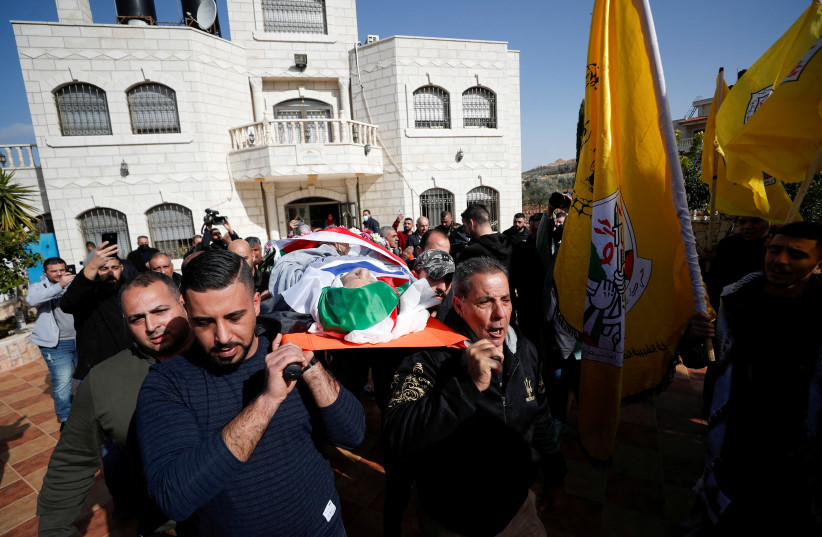Israel agreed to pay NIS 500,000 in compensation of the family of the Palestinian-American man Omar As'ad, 78, who died of heart failure in January after he had been detained by the IDF.
The agreement, the Defense Ministry said, came as part of an agreement to dismiss a court claim against the state on the matter.
"In light of the unfortunate event’s unique circumstances, it was agreed before the court that the family would receive 500,000 NIS," the Defense Ministry said.
"We arrested him, therefore it was our responsibility to take care of him."
Central Command Maj.-Gen. Yehuda Fuchs
<br>Death of Omar As'ad
As'ad had been detained by soldiers from the Netzah Yehuda Battalion at an impromptu checkpoint, set up in his home village of Jiljilya overnight on January 12th.
As'ad was one of several Palestinians that were detained past midnight and held in a construction site. The Palestinians were handcuffed, blindfolded and gagged.

The IDF has said that he was alive when the troops left. A photograph published by the Hebrew website Ynet showed that he appeared to still be alive at 3:52 a.m., on the 12th, shortly before they left the site.
<br>Investigation into a "moral failure"
After investigating the matter, the IDF concluded that there had been a "moral failure and poor decision-making" with regard to the decisions surrounding his death.
Two IDF officers were dismissed from their positions and a battalion commander was censured. At the time Central Command Maj.-Gen. Yehuda Fuchs said that “Nobody should be left this way on the ground, no matter how old he is, even if he is asleep.
"We arrested him, therefore it was our responsibility to take care of him."
In March the left-wing NGO B'Tselem published a report on the incident based on interviews it did with Palestinians who had been detained at the scene, who had seen that As'ad was not breathing after the soldiers left and called on doctor Islam Abu Zaher to treat him.
Zaher said "I saw a person lying face down. I turned him over and recognized him as 'Omar As'ad (Abu Hani), who is a patient at our clinic. He wasn’t in good health – he had heart trouble and diabetes and had open-heart surgery five years ago. He still had a loose blindfold on, a zip tie on one hand, and a cut-off zip tie next to him that had probably been on the other hand, which was bent backwards. There was a red kaffiyeh next to him, which I know he regularly wore.
"I examined him. The first thing that caught my attention was the noticeable cyanosis (blue discoloration) on his face. He wasn't breathing, and there was no pulse or any other vital sign. Usually, when a person reaches that level of cyanosis, it means he’s been dead for at least 15 or 20 minutes. I saw no signs indicating a medical intervention or even attempts to provide first aid, either on his body or nearby," Zaher said.
